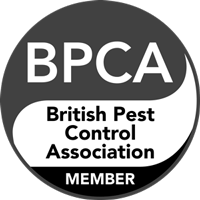Table of Contents
If you’ve noticed signs of ants in your home or garden, our helpful guide will show you the most effective ways to get rid of them. During the summer months, it’s common for ants to invade your garden or home. However, it doesn’t mean you have to put up with them.
Ants can be difficult to get rid of without the help of a professional pest control company. Therefore, we offer ant pest control London to all properties in the south-east of England. Additionally, we provide BPCA-certified technicians to guarantee the job is done correctly, efficiently and with guaranteed success.
On the other hand, many people prefer to conduct DIY ant removal using products found online. If that is you, keep on reading, you’ll have a much better understanding of what to do.
Types of Ants
Across London, there are around 30 species of ants. The majority of them live underground or in the countryside, so you rarely come across them. However, now and then they find their way into our gardens and homes to nest and search for food. Our guide is created solely for garden ants. If you have tropical ants at your property you’ll need to go straight to tip number five, contact a professional pest control company.
Continue reading to help identify which ants you need to get rid.
Garden Ants
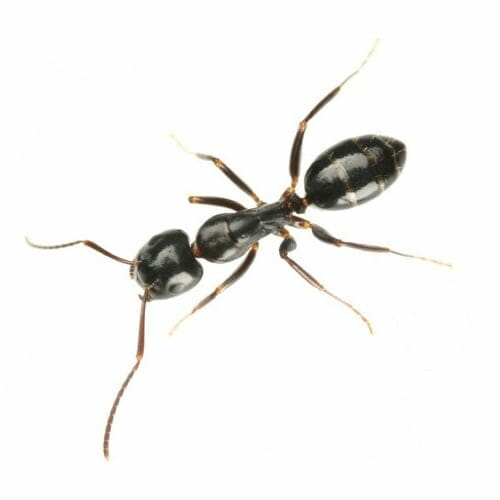
The most common species you look out for is the black garden ant. They are dark brown and distinctly separated by narrow waists. Garden ants tend to vary in length from 3 mm to 5 mm and are attracted to sweet and sugary foods; due to this; you’ll usually find them in your kitchen rummaging through food.
Rarely, tropical ants can be found in the UK, such as roger, ghost and pharaoh ants. However, these ants only tend to survive indoors as they thrive off the warmth provided inside.
Pharaoh Ants
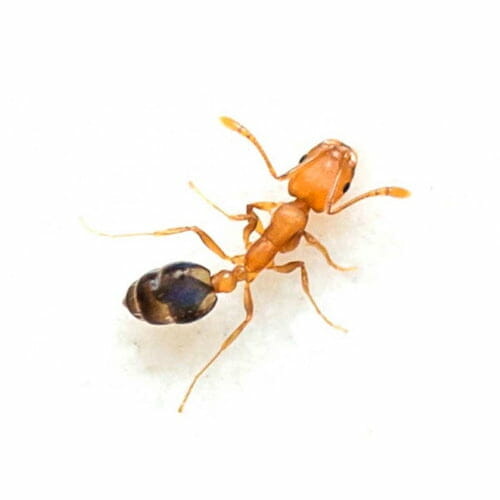
Pharaoh ants are regarded as tropical ants, but they are still prevalent in the UK, London and the south-east. They have a yellow body and are tiny in size, spanning around 2mm. They first came to the UK due to the international trade links created around the world, due to this, they need warmer temperatures to survive and are only found inside buildings.
Ghost Ants
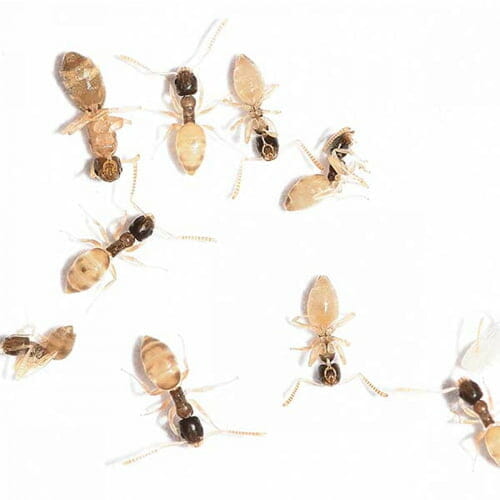
Ghost ants have only recently been introduced to the UK, mainly in London and its surrounding areas. They are referred to as black-headed ants and similar to pharaoh ants, they are tiny, spanning around 1.5mm in length. Their colonies are enormous and usually divide into sub-colonies, making them extremely difficult for untrained individuals to control.
Roger Ants
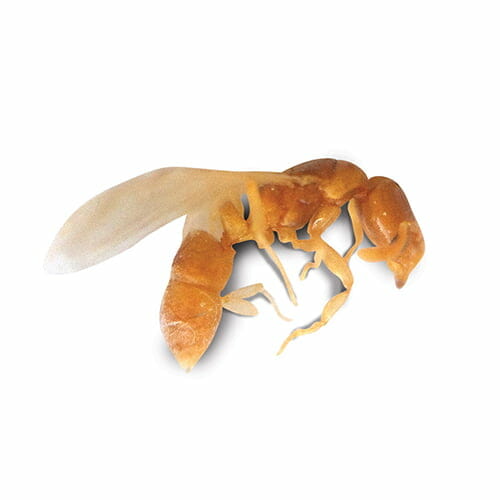
Rodger ants are slightly different in colour, and usually, you notice them for being a reddish-brown. Workers are around 2mm in length, and unlike other ants, they prefer damp locations around drains, plant pots and woodpiles.
Why do ants keep coming back into my home?
Well, ants love to eat the same food as us. Which means they will venture into our home for the chance of finding gold (or food). There is any amount of food for them to eat within our homes, with no competition and plenty of hiding spaces. Even if you kill all the ants in your home, it won’t make a difference in getting rid of them. Keep reading to learn why!
How do I get rid of black ants?
Time needed: 14 days.
How to get rid of black ants?
- Don’t leave food exposed
Ant workers and scouts search for food, and once they find it they’ll be back in numbers.

- Seal all holes and cracks
Ants have to be entering your home from somewhere. Have a look around and block all holes.

- Destroy the nest
If you can locate the nest, pouring a kettle of boiling water is a great step to ease the problem.

- Kill the queen
To stop the nest for good, you need to kill the queen. Otherwise, you’ll never get rid of ants.

- Contact an ant control expert
Professional pest control companies are trained in the identification and removal of ants.

1. Don’t leave food exposed
Ants need to bring food back to their colony to survive. Whatever food you have been eating, or if you notice ants scouting around your cupboards, we recommend sealing all your exposed food. Covering food will prevent future scouts from being able to locate the food and send the message out. Over the years, we’ve found ants tend to love sugary items, so cover up your chocolate in your kitchen.
2. Seal all holes and cracks
To stop the ant infestation in your home, you need to make sure they have no possible access. Our best advice would be to watch a few ants and see where they go; you’ll be able to locate their route into your home and block as required. Make sure to check all windows and doors and seal edges to stop ants from crawling inside.
3. Destroy the nest
To destroy an ants nest, you have a few options. For immediate relief, pour a kettle of boiling water down the hole once you’ve located it. More permanent measures include using sugar-based liquid bait. Workers are attracted to the poison and carry it back to the nest for the larvae and queen, ultimately killing the queen.
You may be asking, how can you find an ants nest? Although tracking them can reveal entry points into your home, more often than not finding their nest using this approach is problematic. Their size allows them to squeeze into spaces you’ll never be able to follow. So instead of following a single ant, we would recommend following multiple ants and building up a picture of where they are going, and hopefully, you can spot them going back to the nest.
4. Kill the queen
Until you have killed the queen, you’ll never have gotten rid of ants. Usually, there is only one queen per colony, and her sole job is to repopulate the ants by laying eggs. That means you could kill 100’s and 1000’s of worker ants, but until you’ve managed to destroy the queen, your measures won’t be permanent.
5. Contact an ant control expert
Destroying ants for good can be difficult. Professional pest control companies are licenced to use higher grade poisons and baits, which have much better effects on getting rid of ants for good. If you’re looking for an ant control company, we operate throughout London, Surrey and the south-east of England. Feel free to call us on 0204 566 5522 or email at [email protected] to discuss your issue. If you have problems with general garden ants or tropical ants, our experience and training will remove the problem for good.




